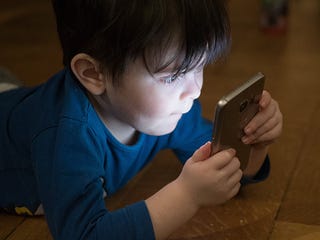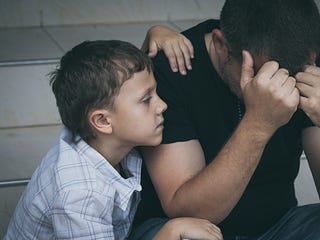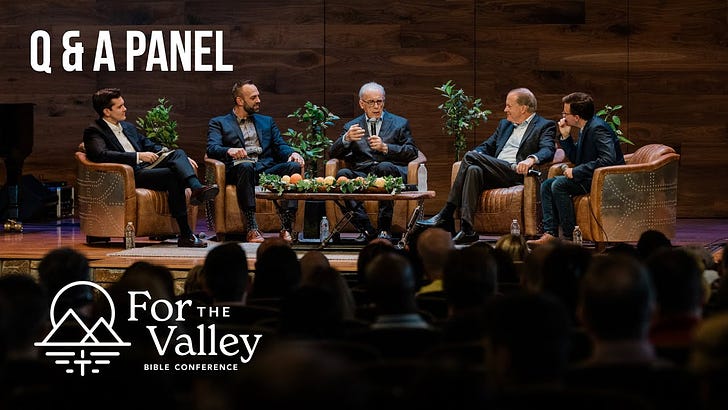I very much appreciate Jean Twenge taking up this complex topic that we all should have been on top of 20 years ago, when parent-age suicide and overdose rates started rising/skyrocketing, and Gen Z was in diapers. Now we have multiple, full-blown crises.
First, 20-agers are not the most suicidal. The short-lived 2020-21 spike in younger-age suicides accompanying the COVID pandemic has since abated. Both 2022 and 2023 CDC figures, with very few deaths remaining to be added, show middle-agers have returned to being the most likely to commit suicide. Teens’ and age 20-29’s suicide and overdose rates fell sharply in 2022, while middle-aged rates rose. In 2022 and 2023, age 20-24’s suicide rate ranked below every older age group 25-64, and teens' rates were the lowest of all.
Second, Twenge relies heavily on survey self-reports of mental health (depressive episodes and suicidal thoughts) that are amply contradicted by real-world outcomes. Mental health issues such as depression, suicidal thoughts, and addiction are deeply stigmatized in American society as moral weaknesses. That middle-agers SAY they’re always doing fine is not relevant.
Tragic outcomes are. Even selectively picking the post-2010 time period during which teens had their biggest increases in self-destructive deaths (suicides and overdoses), grownups of age to be their parents were and are doing far worse.
I randomize this comparison by using the ages of the Surgeon General and local substackers (I’m the oldest) to contrast with teens and young adults. Using standardized deaths from self-inflicted suicides and overdoses per 100,000 population from 2010 to 2022, the kids aren’t the problem:
Girl, age 14: up 3.0 annual deaths to 4.7 per 100,000 population in 2022.
Girl age 16: up 3.6 annual deaths to 7.5 in 2022
Boy age 18: up 7.7 annual deaths to 32.2 in 2022
Man, age 46: up 66.1 annual deaths to 101.5 in 2022
Woman, age 52: up 16.1 annual deaths to 42.1 in 2022
Man, age 60: up 49.4 annual deaths to 106.2 in 2022
Man, age 73: up 17.8 annual deaths to 43.8 in 2022
Note that father-age men, 46, suffered an increase in self-inflicted deaths 18.3 times faster to a level 13.5 times higher than did 16-year-old girls, and even worse trends and levels compared to middle-school girls. Overall, from 2010 through 2022, a record 798,000 middle-agers died from self-inflicted suicides and overdoses, equivalent to the entire population of San Francisco gone. As Gen Z grew up, middle-aged suicide/overdose deaths soared from 23,228 (2000) to 40,730 (2010) to 98,470 (2022).
Unlike misleading percent changes applied to wildly differing numbers, this standardized comparison reflects what families actually experience. Teens left behind after the death of a parent, relative, teacher, coach, etc., would find that depressing, but we don’t ask teens what’s making them unhappy.
Twenge's points suggest a fascinating question, though. How is it that teens (especially girls) report more depression and suicidal thoughts than middle-agers, yet teens (especially girls) have such strikingly low rates of suicide and self-destruction in real life?
It isn’t meds. Middle-agers are much more likely to take anti-depressants than teens or young adults (yet, middle-agers claim they’re less depressed?). It isn’t economics; midlifers are America’s wealthiest age, able to afford mental health care. Further, aren’t middle-agers “developed brains” supposed to make more reasoned decisions than supposedly impulsive “teenage brains”?
I argue one reason for teens’ (especially girls’) extraordinarily low rates of manifest self-destruction – not likely to sit well here! – may be teens’ greater use of social media. That argument results from yet another paradox no one mentions.
According to the CDC survey, teen girls who use screens 5+ hours/day are more likely to report frequently poor mental health (47%) than teens who use screens <1 hour/day (30%), as well as sadness (50% vs 34%), and considering suicide (31% vs 23%). I see those comparisons cited a lot.
However, no one mentions that those same frequently-onscreen teen girls on the same survey then turn around and report being LESS likely to actually attempt suicide (15% vs 19%) and to self-harm (3% vs 7%), as well to try hard drugs, be violence victims, etc., compared to rarely on-screen girls. How can screen time be both more depressing and less suicide/harm inducing?
Put another way, what intervenes between depression and actual suicide attempt/completed suicide to strongly protect girls from actual harm? One clue is that girls are much more likely to suffer parental abuses than boys (62% vs 48%); frequently on-screen girls are 88% more likely than rarely on-screen girls to be abused by parents/grownups; and parent-abused girls are 8 times more likely to attempt suicide (32% vs 3%) and 27 times more likely to self-harm (10% vs 0.3%) than non-abused girls (again: this is the population we’re worried about). Do we then conclude that girls being online somehow provokes parents to violent and/or emotional abuses?
Or, do we look at these as reverse correlations: that abused/depressed girls are more likely to log more screen time than their non-abused counterparts to connect with others who reduce their suicide, self-harm, and other risks?
Finally, Twenge raises another good issue elsewhere: economically advantaged teens report nearly as high depression levels as disadvantaged teens, yet suicide/overdose “deaths of destruction” rates and increases are much worse among poorer adults. However, teen deaths show a similar pattern. The highest levels and worst trends in teen suicides/overdoses by far are among rural White teens in conservative (Republican) states compared to White or diverse teens in Democratic cities, with other populations in between. That is, teens in liberal areas may report more depression, but they are much less likely to actually kill themselves compared to teens in conservative areas.
This suggests yet another disconnect between teens’ amorphous attitudes like depression or sadness (whose meaning we can’t interpret) versus overt suicide attempts and self-harm, along with real-life suicides and self-harm cases (all actual behaviors). A teen depressed because of global warming, Gaza, her dog dying, or getting beaten by mom’s boyfriend requires very different approaches than one depressed because of social-media snarks, or chemical imbalance.
We can nitpick flaws in each other’s studies and surveys, but what we really need is large, comprehensive surveys that ask teens more detailed questions about how a variety of parental issues – abusive behaviors, drug/alcohol abuse, suicidality, unemployment, arrest (rates are now higher among 40-agers than high-schoolers!), incarceration, etc. – as well as political issues affect teens’ own mental health and behaviors. The 2021 CDC survey showing parents’ abuses and job losses were much more important drivers of teens’ depression and suicidality than screen time (including TV time) hint at a much larger problem.














































































































